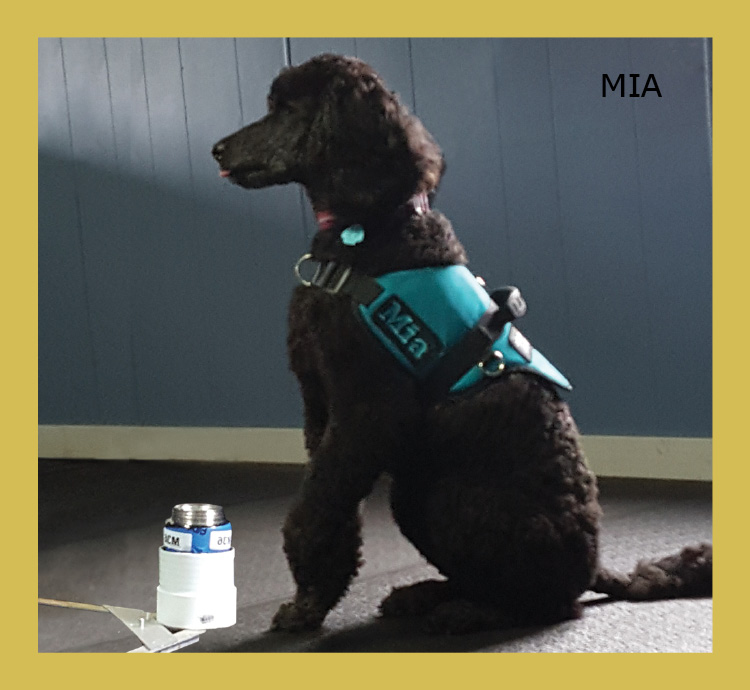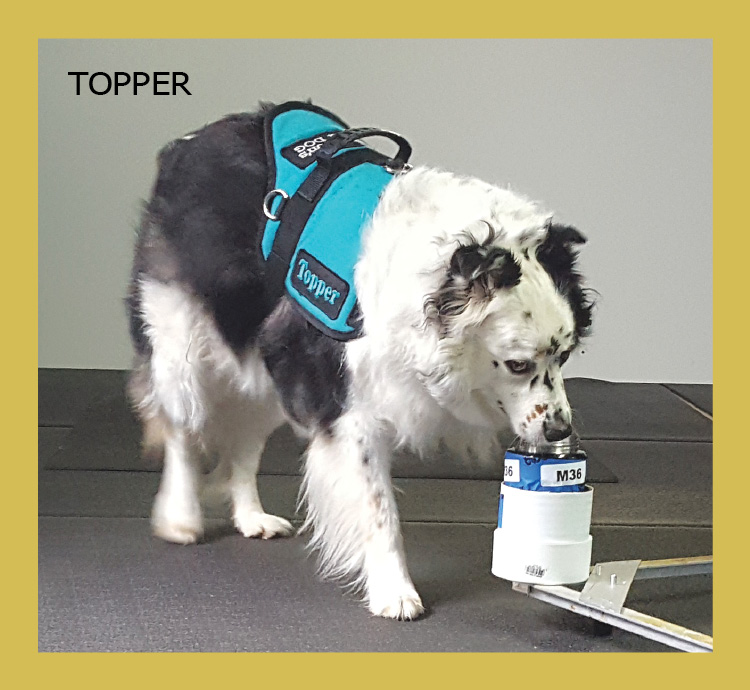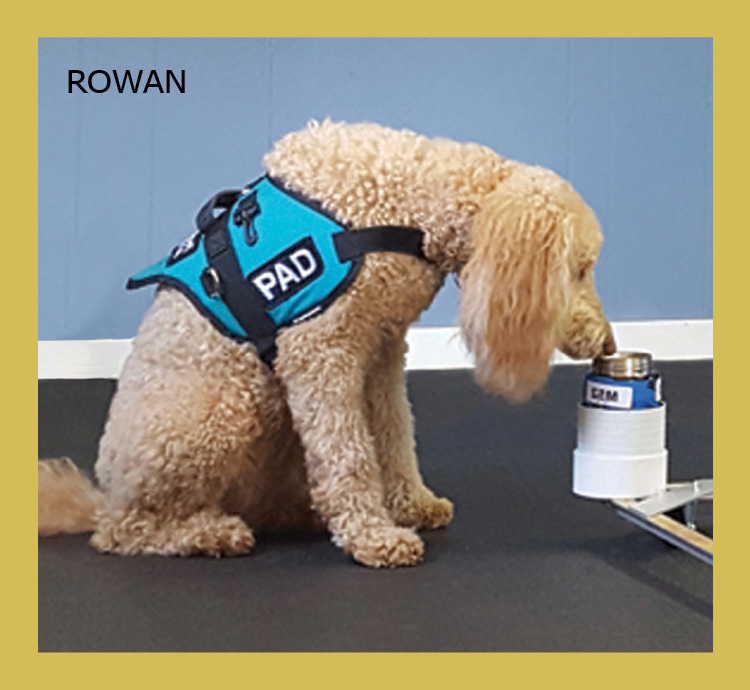Dogs are not called our “best friends” for nothing. Apart from being our loving companions and protectors down the ages, many have impressive skills and talents. We’re all familiar with assistance dogs, like seeing eye dogs for those with visual impairments, but they are often specially bred and undergo years of training to learn their craft. But could your pet dog have an untapped ability? A new study reports on a years-long project that saw ordinary pets trained up to become medical detection dogs, able to sniff out the signature scent of Parkinson’s disease (PD).
The study, which has been posted as a preprint and has not yet been peer-reviewed, took 23 very good boys and girls of various breeds, ages, and backgrounds. The culmination of a seven-year program, it comprised a total of 200 sessions with the dogs between 2021 and 2022.

One of the participants, Mia, doing a great job in training.
Image courtesy of Lisa Holt and Sam Johnston
“It takes approximately 6-8 months of training with the dogs attending 3-4 days per week,” Lisa Holt, certified trainer and founder of the PADs for Parkinson’s organization, told IFLScience.
“The dogs are trained to distinguish the difference between PD-positive sebum samples and PD-negative sebum samples. These samples have been collected from individuals with and without Parkinson’s Disease […] using T-shirts that sample donors sleep in overnight, or cotton swabs collected from the upper back and lower backside of the neck.”
Sniffing out Parkinson’s disease
We know from previous research in dogs – and from observations of a woman named Joy Milne, who was born with an extremely heightened sense of smell – that it is possible to distinguish between volatile compounds in the sebum of individuals with and without PD, even before any symptoms become apparent.
UK-based charity Medical Detection Dogs has been working in this area for over 15 years, training pooches to work with people with a multitude of conditions, as well as conducting research into the potential abilities of dogs to detect a range of infectious and chronic diseases.
With all of this behind them, the team at PADs for Parkinson’s set out to trial their training regimen with a very diverse group of dogs. As Holt explained, there’s no one “ideal” breed for this kind of work.

Topper gets stuck into the task.
Image courtesy of Lisa Holt and Sam Johnston
“We had an English Mastiff (brachycephalic) that performed quite well and a Basset Hound (scent hound) that was challenged. It really comes down to the individual dog’s desire to continue working to solve the odor puzzle. These are dogs that enjoy sniffing and can work independently.”
The training period saw the dogs receiving a total of 320-340 exposures to the PD-positive sebum samples. Gradually, they worked with their trainer to cement their alert signal, such as a paw tap or a bark, which each dog was allowed to choose for themselves. Eventually, they started being challenged to alert to samples they’d never encountered before.

Rowan having a serious schniff-schnoff.
Image courtesy of Lisa Holt and Sam Johnston
“For these first-time exposure, the 23 dogs collectively averaged 86 percent sensitivity and 89 percent specificity,” the paper explains. Ten of the dogs were able to individually achieve sensitivities and specificities of over 90 percent. The study was also able to address an open question in the arena of olfactory detection of PD, namely that treatment with levodopa did not seem to impact the results.
Holt envisages a future where dogs could be used to screen samples from people with early-onset PD, identifying those who may need further testing and potentially giving them earlier access to treatment, which could have a big impact on the progression of their disease. “This is how dogs could work in tandem with medicine, but first we would need a widely available training aid and also a method to confirm the dog’s indication,” Holt told IFLScience.
“Celebrate your dog”
One of the highlights of this project came from seeing dogs that were enthusiastic and excited about the work they were doing. Holt told us one heartwarming story about a Papillon who had been distinguishing herself during the training. The training facility was on land that also played host to a county fair, during which time the program was paused for a week because of all the noise and distraction. Apparently, said Papillon didn’t quite get the memo that school was out!
“During Fair week, her owner happened to park her vehicle in the vicinity of the County Fair (imagine there are rides, booths, goats, pigs, chickens, big noises, huge distractions everywhere and tons of people of all ages milling about) and her dog jumped out of the vehicle and ran right onto the Fairgrounds,” Holt told IFLScience. “The owner was simply terrified […] [She] searched and searched, and finally… you guessed it. She found her dog standing anxiously at the entrance door to PADs waiting to come in to work.”
The study provides good evidence of the potential of training domestic dogs to detect PD, but as Holt pointed out, “there are a lot of unknowns”. It’s not clear precisely which scent compounds are being detected, whether different dogs might detect different combinations of compounds, or whether PD could present with a different cocktail of compounds in different people or at different stages. Further research could help answer some of these questions, but it’s fair to say that the dogs have so far proven themselves up to the task.
“Their sense of smell is 10,000 to 100,000 times more sensitive than that of a human. They can inhale and exhale at the same time. They can use their left and right nostril differently so that they smell in stereo,” Holt told IFLScience.
“Celebrate your dog. Your dog is amazing.”
We couldn’t agree more.
The study, which has been posted as a preprint and is yet to undergo peer review, is available at bioRxiv.
Source Link: Pet Dogs Trained To Sniff Out Parkinson's Disease With Up To 90 Percent Accuracy